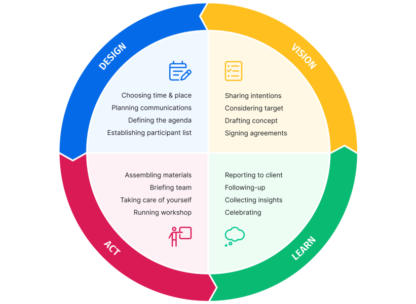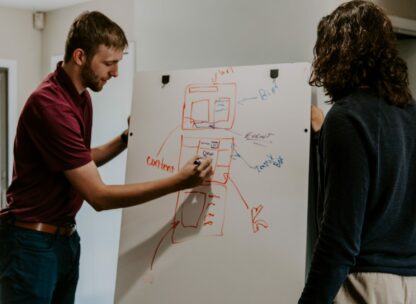Why trainers don’t share?

Someone even admitted: “I don’t even share my training materials with my co-trainers”.
Some others said: “Maybe I would share my materials, but I don’t think others would”
A board member of an international NGO told us they had to cancel a sharing session at a conference since literally no one showed up to showcase their learning materials.
We felt something is wrong.
If even NGO trainers, who are often less profit-oriented, don’t share then who would?
Why don’t we, trainers, share our knowledge with each other?
Why do we have to work in isolation and reinvent the wheel over and over again?
To regain our faith, we started looking for good examples in different industries, where sharing of knowledges provides benefits for the community and fires innovation.
Wikipedia needs no introduction; hardly anyone argues that open collaboration and sharing has contributed to better access of knowledge and information. Thousands of volunteers spend time and effort every day to share their knowledge with the rest of the world.
Why do they do so?
If you like statistics, 71% of Wikipedia editors contribute because they like the idea of volunteering to share knowledge. 69% believe that information should be freely available, and 63% pointed that contributing is fun.
Some may say though, that Wikipedia editors can be generous with their knowledge since they are not sharing information that makes them stand out in a competitive environment. They have nothing to lose.
Seems like a fair point, let’s look at some examples from professional service industries then!
One of the first industries to embrace and pioneer the sharing of knowledge is the software industry. Professional Q&A sites like Stack Overflow minimize the reason for developers to reinvent the wheel. Services like GitHub help developers to share their code and solve technical challenges through open-sourcing and online collaboration.
Open source software development is on the rise: some forecast suggests that at least half of the world’s software could be open source by 2016. This very blog service, Tumblr uses a plethora of open source software.
Did half of the world (including Tumblr) go mad?
We don’t think so: open sourcing previously proprietary knowledge helps companies and organisations achieve more reliable software, faster, while still having the possibility to monetize their products and services.
Look at engineering for that matter, an industry not so long ago dominated by hand drawn blueprints stored in cabinets. Today online services like GrabCAD revolutionize the way engineers create value by letting them build on top of each others’ designs. Think of it this way: why would anyone need to design nuts and bolts or basic building blocks of constructions over and over again?
It seems engineers are not afraid to share their building blocks for a greater good and saving time. Already tens of thousands of engineers have uploaded over 200,000 design files for the benefit of the community.
Why do engineers do it?
One explanation lies in a study taken not long ago, saying that the reasons driving such initiatives are Challenge, Mastery and Making a Contribution. If you are interested in the detailed research findings on what motivates us, here is a highly interesting animated talk by Dan Pink:
[youtube https://www.youtube.com/watch?v=u6XAPnuFjJc]
So why don’t we, trainers, share?
What do you think?



Leave a Comment